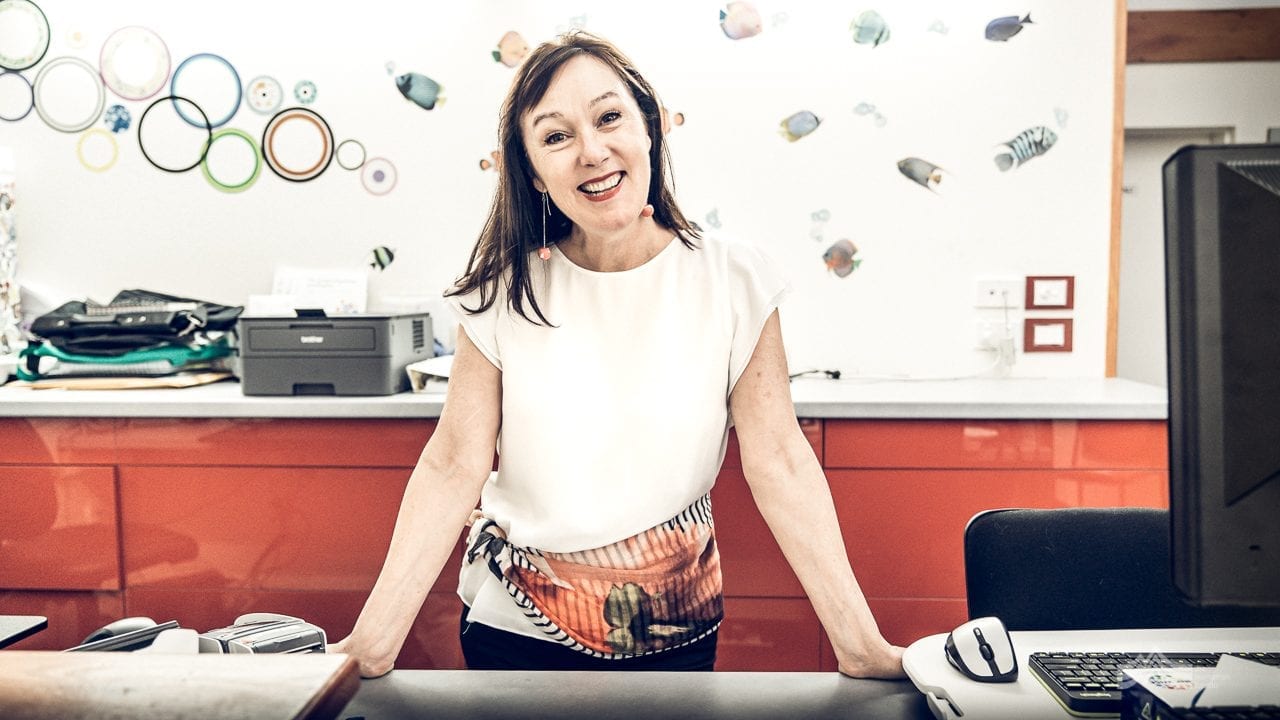Above all else, Rosalie Martin’s story is one of great empathy. Over the past decade ‘Rosie’ has become a powerful voice for communication and kindness, and it is her passion for supporting the skills and dignity of others that has led to where she is today – a leader in connecting through language, literacy and love.
Rosie grew up in rural South Australia, the earliest of her childhood years being spent in Woomera. “It’s amazing how much of an impression the place made on me,” she says. “I still feel a real depth of connection to the desert. I always think of that red dust as akin to my own red blood cells, and arriving in the desert even today instantly feels very familiar and homely to me.”
Describing a childhood rich in space and freedom, Rosie’s formative years unfolded on a small farm in the Barossa Valley. “Whilst we didn’t have financial privileges, we were happy, relaxed, messy and surrounded by animals. Looking back, I really appreciate the time spent on the land and everything that it gave me. I had wonderful parents who valued the worth and growth in each of us and who encouraged me to go to university when the time came – I was the first in the family to do so – but they were never pushy.” Reflecting for a moment she adds, “In fact, mum never ever verbalised her aspirations for me. I think she could see potential but she deliberately let me find my own way.”
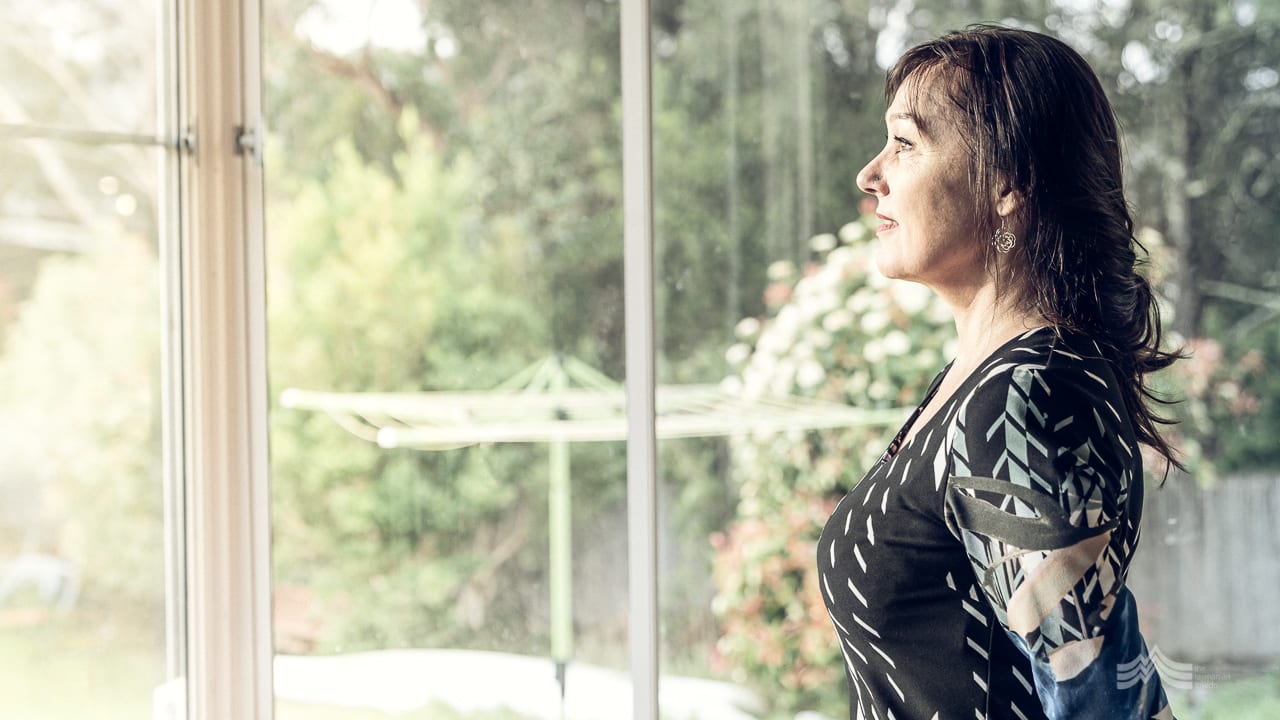
Rosie speaks with genuine passion for her profession of choice. “Back when I was studying speech pathology, 97% of the students were female. Intriguingly, there has been very little shift in that gender balance. I think it’s the last real bastion of industries to have a real gender shake up,” describes Rosie. “Across my working life I’ve definitely seen a shift from a timid approach to a far more robust profession. The impact speech pathologists can have now is tremendous and very exciting. There are amazing opportunities to empower others and I hope we see more men take on the challenge of helping turn the tide of the communication dilemma that we currently face as a community.”
Rosie’s field of expertise can be traced back to her own family. “My brother grew up with significant hearing difficulties and I really think that influenced what I chose to do with my life. I saw the challenges my mother faced in seeking support for him and I think that definitely shaped what I wanted to do. It was always going to be something that involved helping others.”

After an initial hitchhiking trip around Tassie as a young uni student, Rosie has long held a soft spot for the island state. “I instantly fell in love with it,” she smiles. “Particularly the area around Wineglass Bay. As a young woman I had never seen scenery like that anywhere before. I just love that landscape.”
The story goes that after marrying husband Rich, the young couple were toying with the concept of home. “We were looking for a town to call home. At the time, Rich was still studying so it had to have a good university. Neither of us are big city people so Hobart seemed like a natural fit in many ways. We settled in to life here very easily and I found it easy to get a job while Rich was preparing to settle to study. Our two kids arrived a little earlier that we had initially planned but looking back everything worked out perfectly. We’re both eternally happy that we chose to call Tasmania home.”
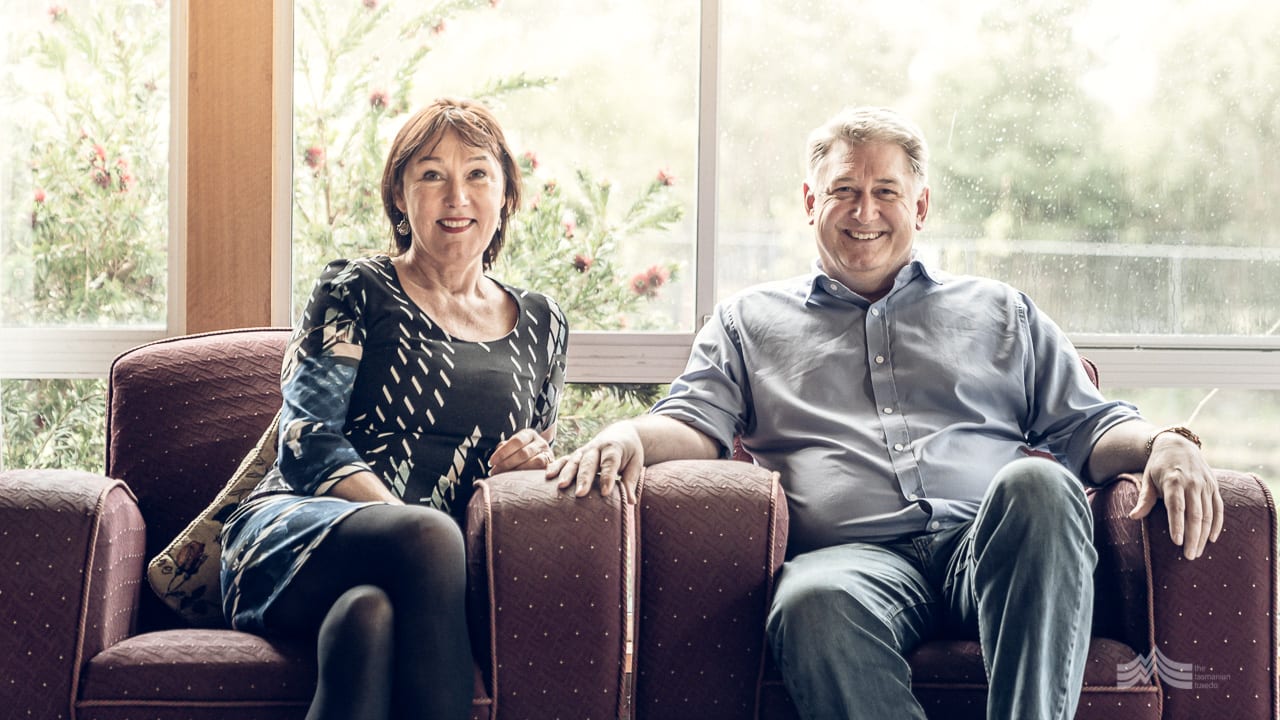
Rosie’s private speech pathology practice, Speech Pathology Tasmania, has evolved over the past 25 years. “Initially it was a way for me to work flexibly around our own two kids and to focus on the communication needs of children,” explains Rosie. “We’re a generalist clinic but specialise in dealing with autism and severe literacy challenges. Each of the 16 professionals within the practice today offer a different skills matrix with their own areas of speciality.”
“What we know now is that communication skills provide access to just about everything. They are our very social agency and are intrinsically linked to social inequity.” With years of private practice experience to draw upon, Rosie is very clear about what she experiences, “Put simply, people who don’t have solid language skills don’t occupy positions of power. Those skills of oration are so important for access and influence…to be able to communicate effectively is empowering and provides people with immense influence.”
Realising the opportunity that awaits, Rosie found herself volunteering in Tasmania’s prison system. “I literally rang the prison and asked if I could come and volunteer,” she recalls. “I took time out from my practice because I just wanted to see if I could share my skills and make a difference. About 50% of the kids we see in the criminal justice system have severe language impairments,” Rosie explains. “In the general population it’s only about 1-2%…so the difference is marked. These kids may then move into the adult justice system but their problems don’t go away. Enlightened speech pathologists soon realise that when we work with people with these challenges, and make real and meaningful connections with them, that things really can change.”
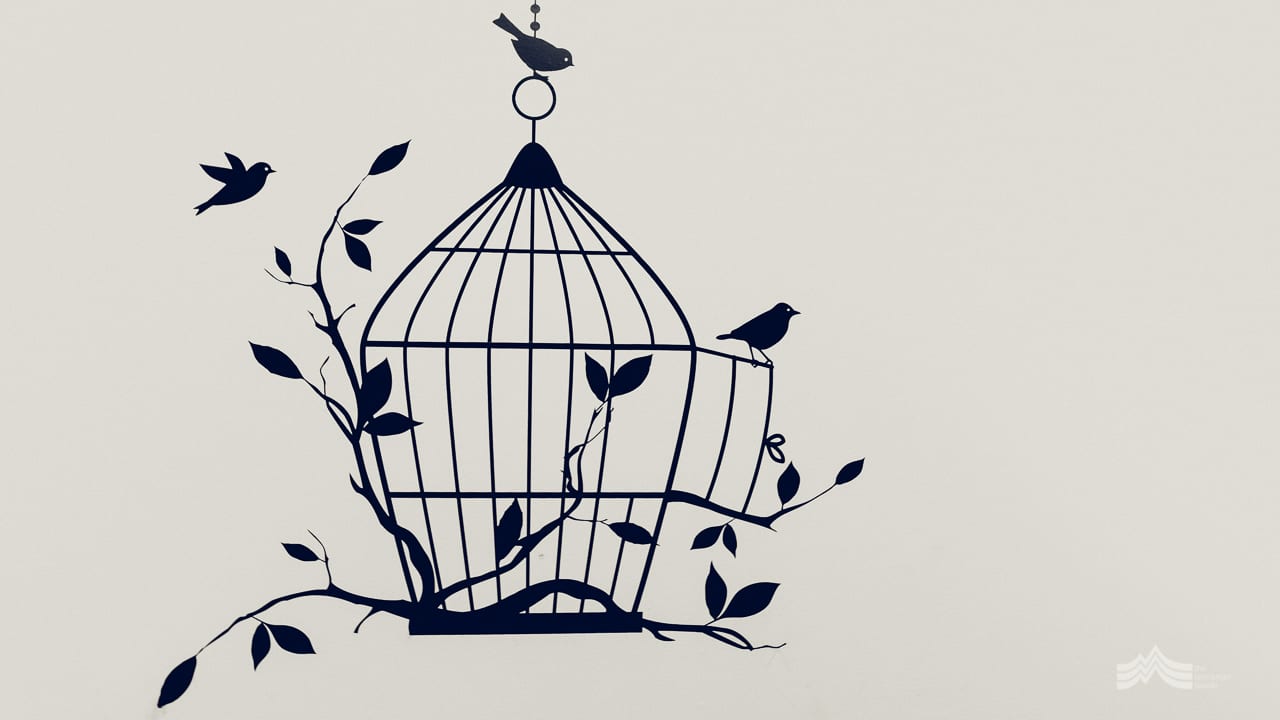
“One of the very first prisoners I worked with was a man in his fifties,” recalls Rosie. “I taught him to read within a few months and the change that ensued was quite staggering. Things evolved from there, and I have gradually taken a little more time away from my practice to focus on the prison work. The key is building relationships that will last beyond the prison gate – the science is very clear that significant gains will be made when people are supported in warm relationships.”
Rosie describes the changes that would stem if we all understood that language and communication is a privilege. “You and I…we didn’t earn this privilege, it was just gifted to us by our situations, we were just lucky to be blessed with the full power that comes with that. Others however are not so lucky. With empathy and understanding we can shape a much kinder world. Compassion can make real change.”
Driven by the impact her communication development work was having in settings of disadvantage, Rosie launched Chatter Matters. “We’ve since changed the name to Connect42, but the principles are the same. We’re focused on building those core skills of connection and expanding communication privilege through compassion and empathy for others. The goal is to see communication rich programs in prisons that are scientifically based on language and literacy development.”

“The glorious story is that it gained traction. The success we are seeing now has also come off the back of some very generous people who understand the value of the work we are doing. We have some wonderful philanthropic support and that generosity of human spirit is very touching and has made it all possible.”
Seeking to deepen her understanding of the landscape she was working within, Rosie went on to become a criminologist. “Those studies were really enlightening for me and certainly helped with my work within the prison system,” she says. “Over time I have been able to give more, understand more and make connections that have had some very special outcomes.”
“Often what we see are issues interpreted as behaviour problems. But in fact, what we actually have are communication problems. When someone is empowered through literacy, language and love…the transformation is quite real.”
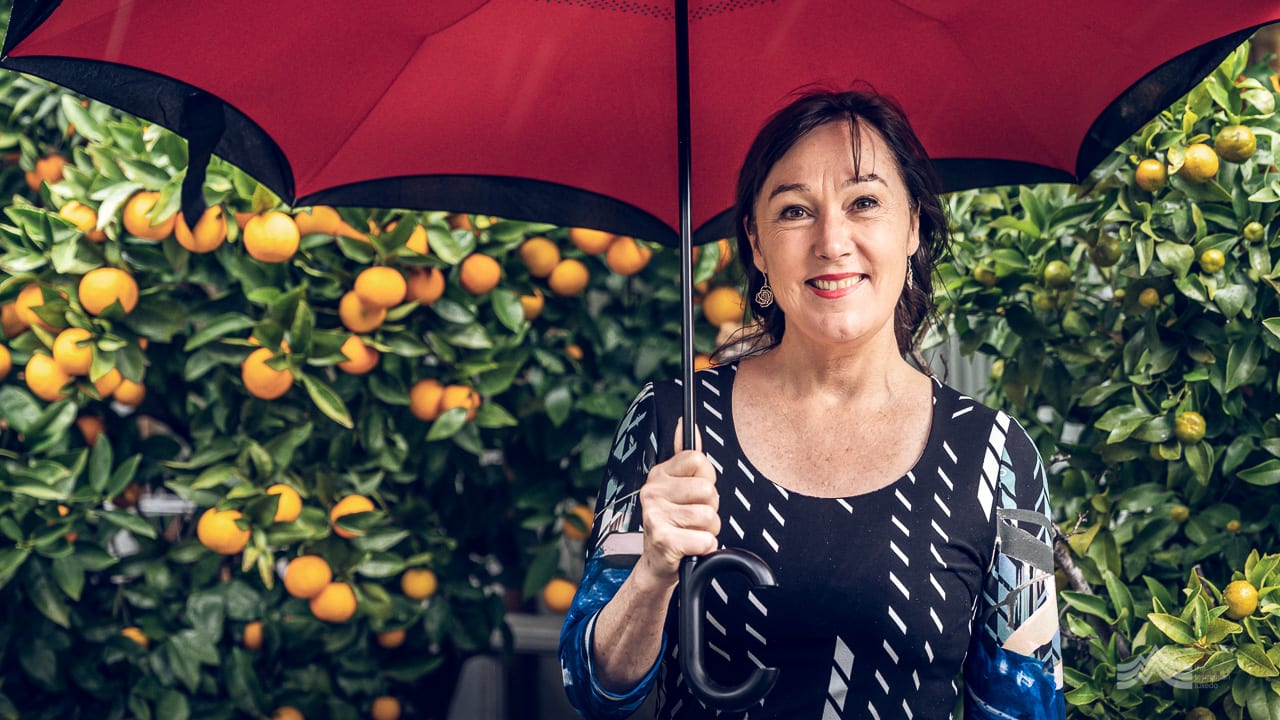
2017 saw Rosie formally recognised for her work helping prisoners transform their lives. Being named Tasmania’s Australian of the Year was both an amazing lift to her program within the prison system and a surprise to Rosie herself. “Who would have thought it?” she marvels. “To this day I still don’t know who nominated me and I don’t think I ever will. However, I’m eternally grateful to them as the exposure that it generated for Connect42 has been game-changing.”
Meeting Rosie for the first time, one is given a clear window into the qualities that undoubtedly lie at the core of her work. Her warm manner, her articulate breakdown of complex issues, and her passion for driving change are evident from the outset. The sense of connection she builds within one meeting is palpable and it is through the endless giving of herself that one can easily appreciate how others are receiving so much.
As society has changed and come to openly value equity, opportunity and equality we have also come to understand that children can be the product of intergenerational disadvantage. Rosie goes on to speak of the social challenges that reduced language skills can bring. “Our profession understands how to teach language. It understands how it grows and how the neurological pathways are best supported. Connections lie at the core of this. We need to build those connections to build language and vocabulary…only after this will we see changes in behaviours and social skills.”
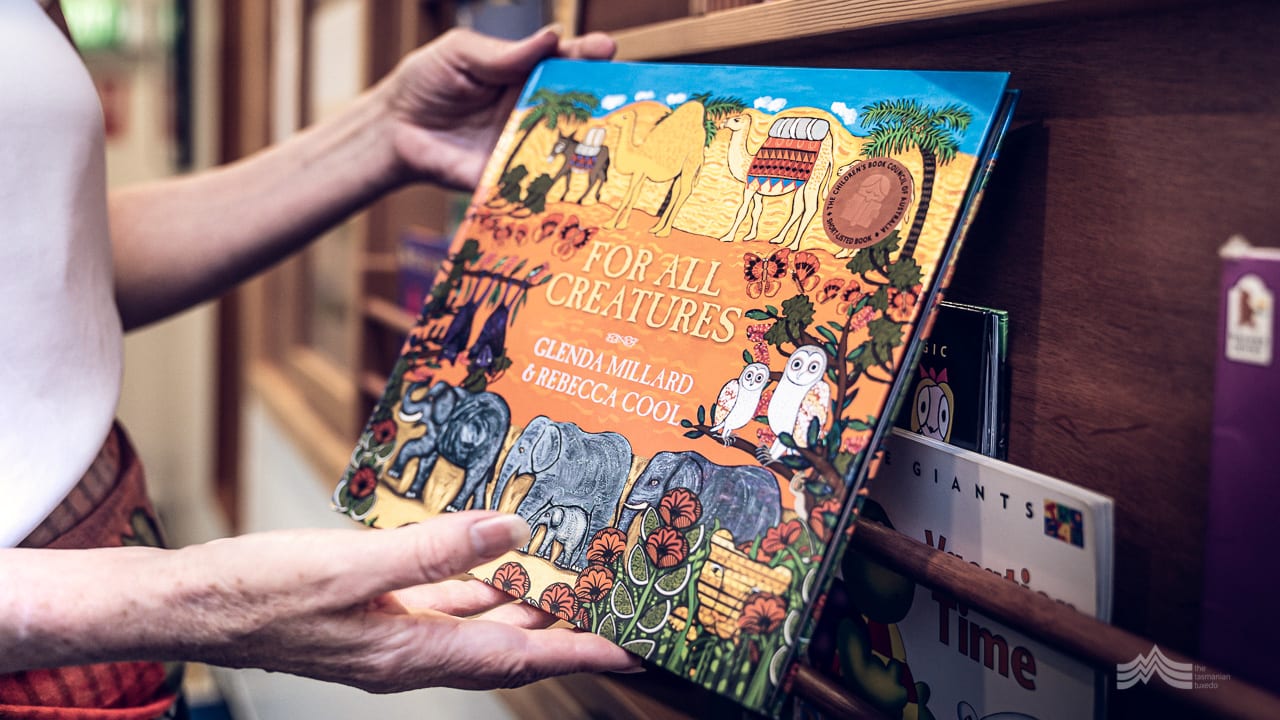
Rosie describes a time of great transition in language education. “I can see a tipping point coming in the next five years,” she says definitively. “We need far greater support for teachers to be able to manage the diversity within their classrooms as well as a change in the instructional practice of teaching literacy. While 70% of children will learn to read relatively easily, we’re losing the other 30%. It’s imperative we give all children the code to reading. Synthetic phonics, a synthesis of sounds and the components of language, is where we need to head but at the moment that is not happening in universities. We have a lot of work to do to better equip our teachers with the right training.”
“In Tasmania we currently have a 48% illiteracy rate. I’d go as far as to say that’s a symptom of a national emergency.”
“Our teachers are struggling. They’re expected to teach without adequate support. They don’t get adequate time out of the classroom for professional development. Speech pathologists are ideally placed to help with this and we’re desperately trying to incite this change within university training. Teachers also need support to engage parents and the wider community. It’s crucial that parents value learning and that only comes with warmth, kindness and generosity to help them feel confident to help their children. Parent connection to the school influences the talk at home and that’s so very important.”
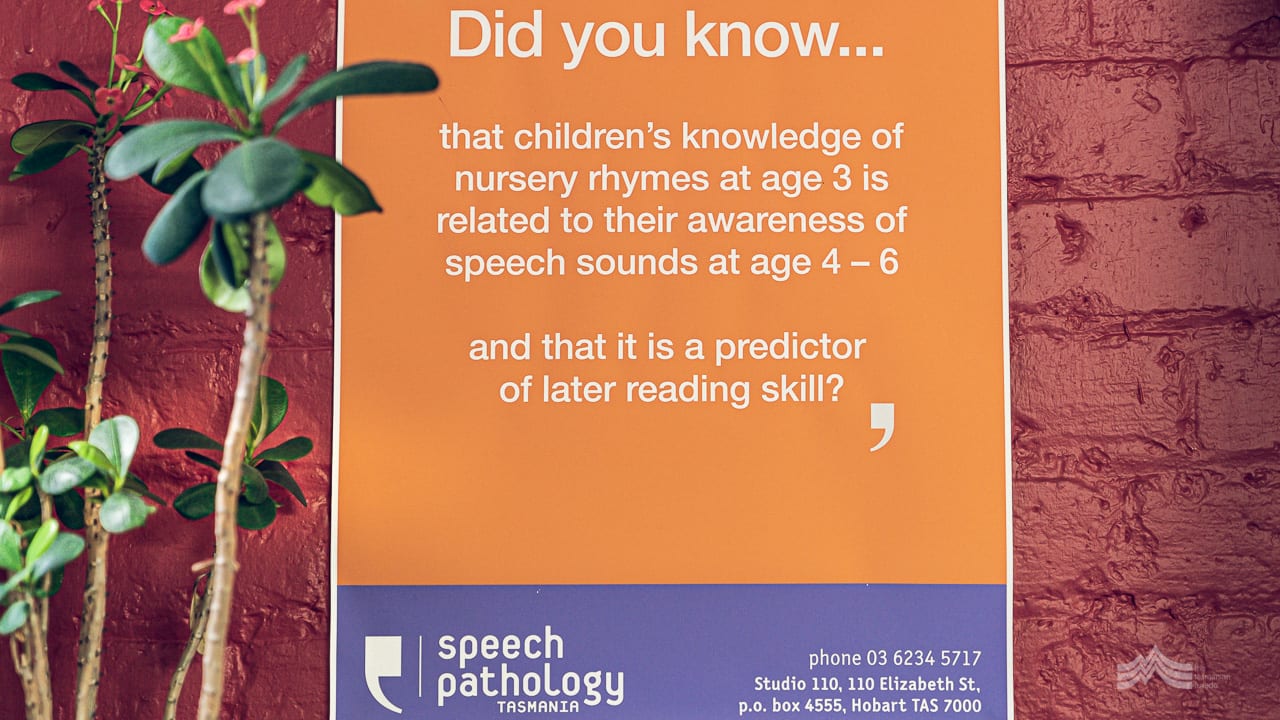
Rosie herself is actively working with teachers to provide the support that is desperately required. “I love working with teachers,” she says. “What they do is very complex and supporting them is crucial. I see the daily challenges my teacher friends face and know it’s vital we look after their wellbeing. Schools are hard places to work and if we can support teachers to be their most authentic selves and remain truly connected to what they do, then we can take the hard edges off those institutions.”
Rosie and Rich’s foray into running courage retreats has been met with outstanding success. “Supporting teachers in deep conversations about what they do and why they do it is really beneficial. We need to give them time to reflect and recharge so that their work can be sustained. High end communication skills like deep listening, skilful questioning and reflective practice lead to us valuing diversity, developing wisdom and wise leadership – all of which nurture the social fabric of our world.”
With a busy private practice to manage, oversight of Connect42, courage retreats to plan and a home renovation happening in the background, Rosie is not one to shirk a challenge. “Rich and I do just this because we love it. Our kids have grown up and this is a great time for us to concentrate on driving changes that are so desperately needed within the spheres in which we have influence. We work a lot, but it doesn’t feel like work when you love it. I get to meet so many great people and really find what we do so very sustaining. This work brings with it deep connections and I so often feel that we are the ones that are the real beneficiaries.”
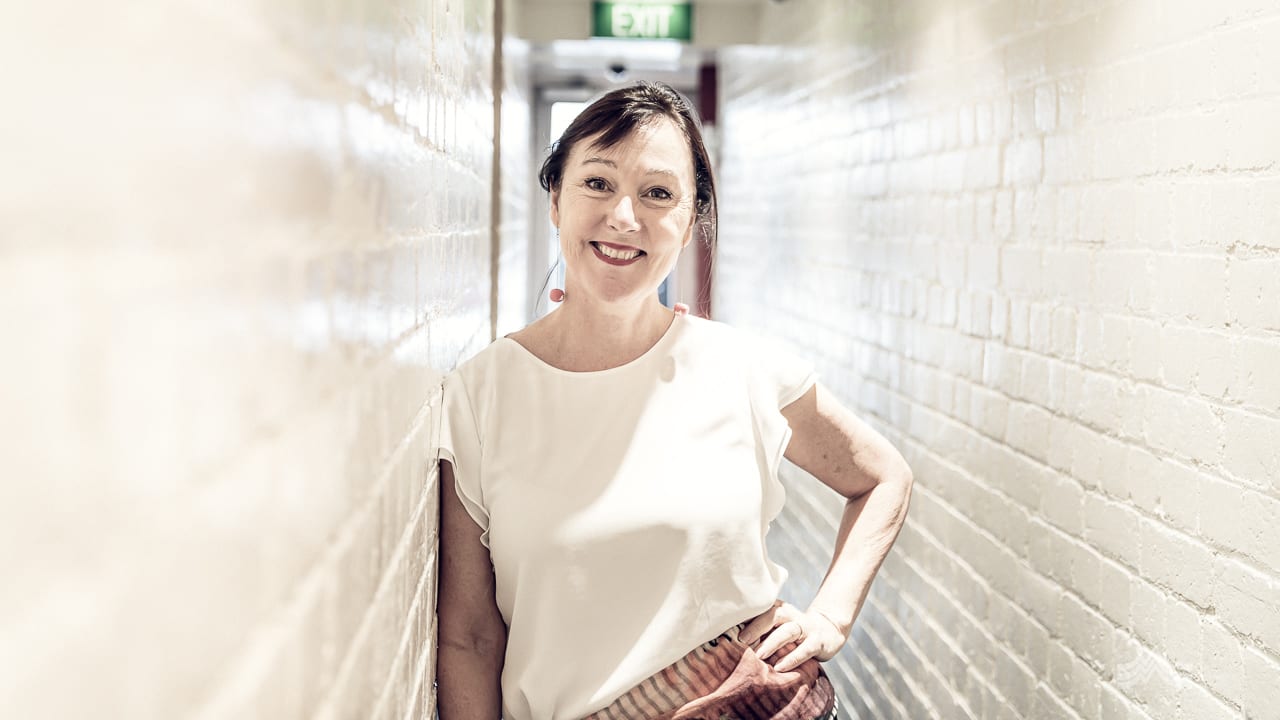
Read more via the Connect42 website and Facebook page.
Rosie’s own website provides further details about her courage work
